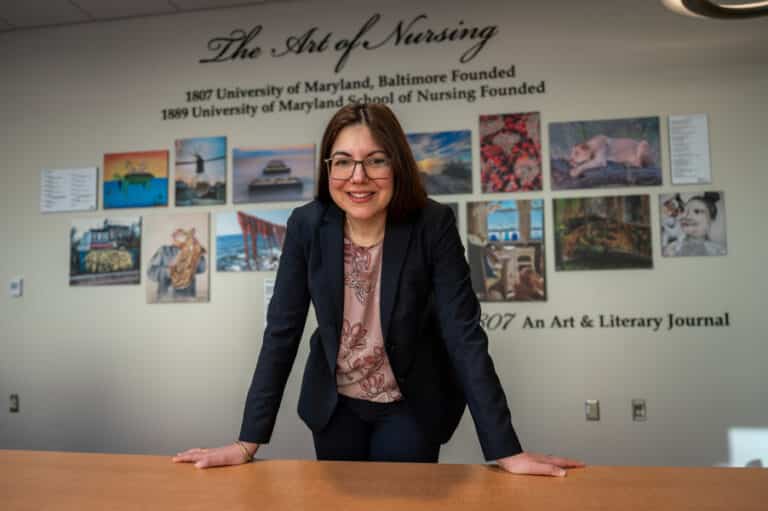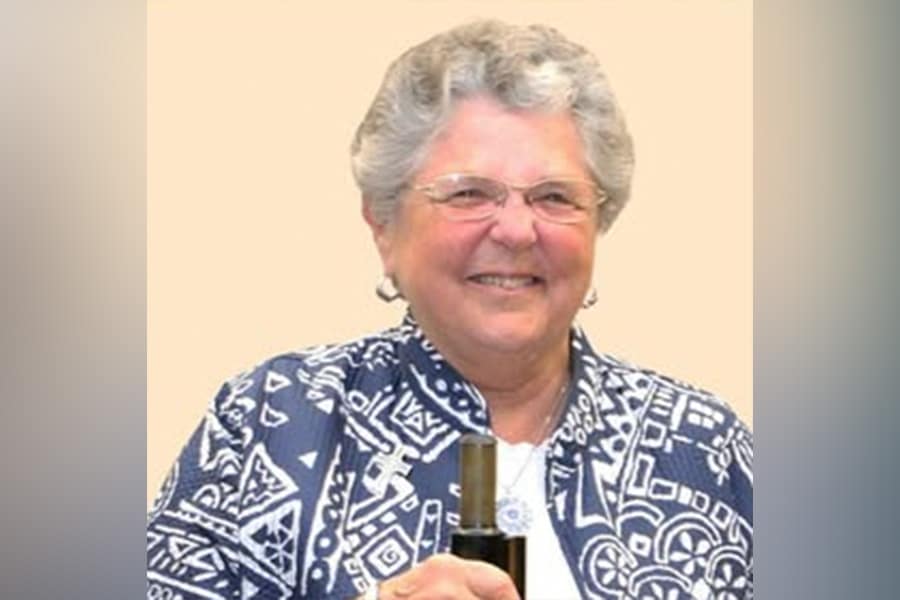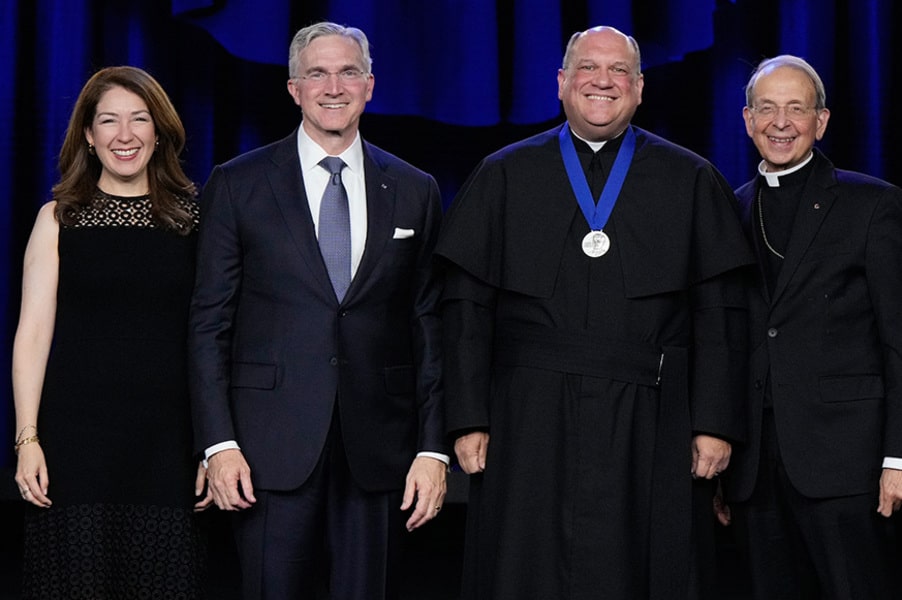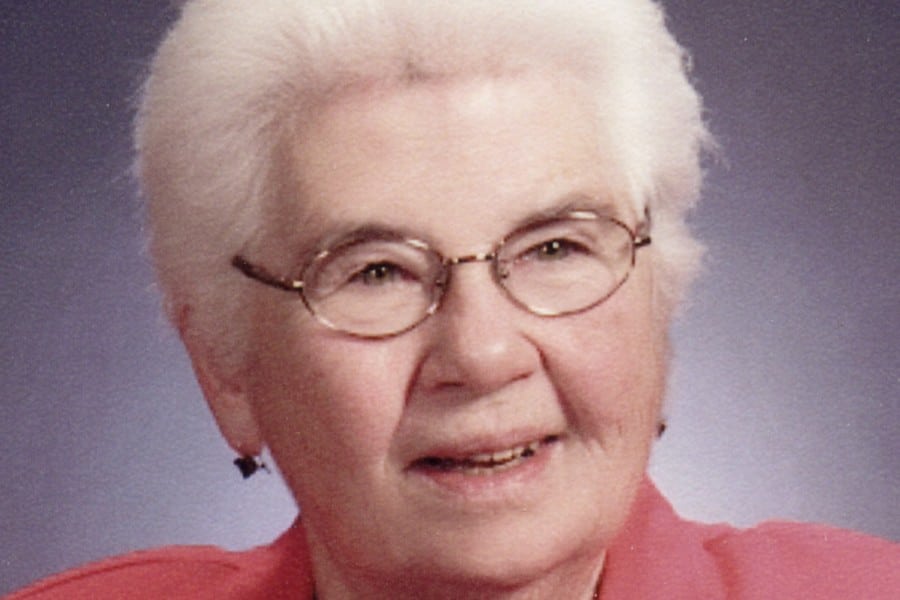Dr. Luana Colloca visibly bristles when it is suggested that the sensation of pain is all in one’s head. The professor at the University of Maryland School of Nursing in Baltimore has made a career of unraveling the mysteries of how the brain interprets pain.
While there is still a lot to learn, she knows one thing for certain: “Pain is real,” said Colloca, a native of Calabria, Italy, who holds a doctorate in neuroscience from University of Turin Medical School and a medical degree from University Magna Graecia of Catanzaro School of Medicine, both in Italy.
“It is very rare to find pain only in our head,” Colloca explained. “Think of our mind as something linked to biological change. When we suspect it is in our head, there is something beyond that. A biological change.”
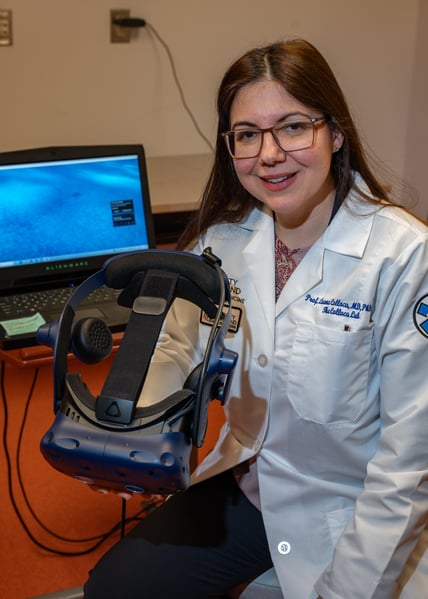
Pain is a complex challenge, she said, as there are so many different forms and causes. How the brain interprets pain is also different for everyone, said Colloca, a parishioner of St. Leo the Great in Little Italy.
“Pain is such a unique experience. We all experience some form of pain,” she said. “The dilemma is when pain becomes excruciating, chronic, making the lives of people very difficult.”
Leader in pain research
As the director of the Placebo Beyond Opinions Center at the University of Maryland in Baltimore, Colloca explores ways to reduce pain through methods that don’t rely solely on drugs. Her innovative treatment, including the use of virtual reality, earned her the 2024 Founders Week Researcher of the Year award from the University of Maryland in October.
“Dr. Colloca’s research over the past 10 years has significantly advanced the field of pain and translational symptom science,” Dr. Barbara Resnick, professor at University of Maryland School of Nursing, wrote in her nomination of Colloca for the 2024 Founders Award. “Her innovative studies on placebo effects, immersive virtual reality and pain modulation have influenced clinical practice and public policy, providing new approaches to pain management that reduce reliance on opioid medications.”
The placebo effect is the improvement of symptoms related to a neurobiological change occurring in the brain. This biological change can be triggered by suggestions, such as “we are going to give you a powerful painkiller,” Colloca said. It can be triggered by prior experiences, such as being treated in the same room in the same context. A positive relationship with a physician can also be a trigger.
Colloca’s lab uses an interdisciplinary approach, working with psychologists, biologists, physicians and nurses to understand the nature of pain through different lenses.
“We all tackle the same problem of pain with different approaches,” Colloca said.
A patient’s voice is an important part of the equation. Knowing information about pain, its start and how it limits a patient in daily life, helps the team find the factors that help make the patient feel better or worse, Colloca said. The team also looks at a patient’s genetic makeup and past experiences that may include trauma.
For a very small percentage of patients, the placebo effect is “quite silent,” Colloca said, and their symptoms get worse. Many are fearful of pain and have catastrophic negative thoughts, she said. Virtual reality has proven to be a valuable tool for these patients, she added.
“Through immersion and presence in virtual reality, they are able to detach from their pain and experience improved mood and the ability to rest and feel recharge,” Colloca said.
Although not a formal part of her research, Colloca acknowledged the role of faith in healing, as it can shape mindsets and expectations.
“Faith can be very resourceful,” said Colloca, who also holds a master’s degree in bioethics from the University of Turin, Italy. “Faith can relieve pain in a way that helps coping with pain and reacting to pain.”
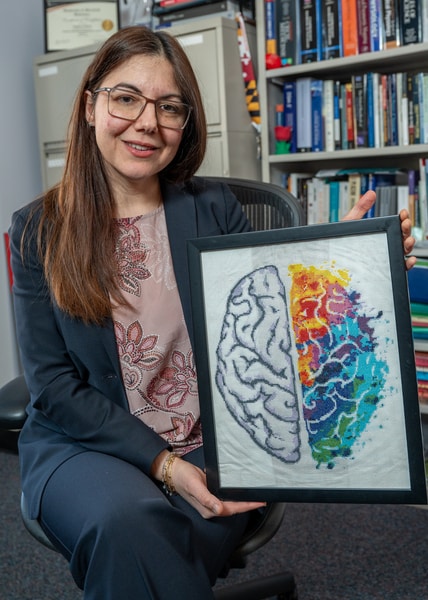
Chronic pain, she noted, often leaves patients feeling hopeless. Yet, faith provides many with the strength to endure and find resilience.
“Changes occur in the brain triggered by suggestion,” Colloca said. “Our beliefs affect … in a general way, how we see the world around us.”
She believes that the behavior of a physician and the context of treatment can strongly influence a patient’s pain experience.
A life of science and service
Colloca credits her Catholic faith for guiding her on her journey from Italy to Sweden to the United States. In Sweden, she completed post-doctoral training in brain imaging at the Karolinska Institute in Stockholm.
She recognizes that whatever gifts and talents she received are from a higher power, she said, and she prays daily to understand what God is doing in her life and in her scientific work.
“It may sound trivial, but often I am in church praying, and I see the solution for something for which we are searching,” Colloca said. “I am open to listening. I do believe that faith is part of my science at this point and that is very inspiring.”
Her faith gives her the courage to be open to challenges and to pack everything up and move, she said. The first thing she discovers when she moves is the local church. At St. Leo, Colloca teaches Italian, assists with the Italian Mass, serves on the pastoral council and is a lector. She is also a good friend, Pallottine Father Bernard Carman, pastor, said.
“She is very pleasant and always cheerful,” Father Carman said. “She is an amazing person. We are very blessed to have her here in the parish.”
She is thankful for her scientific laboratory family with members from India, China, Portugal and the United States. Though there are a variety of religions in the lab, they are all united with a sense of welcoming and family and “the belief that in any challenge we are not alone. There is God guiding us.
“To be open to any religion, to love and respect one another and to believe in what we do, I think makes a difference in the lab,” Colloca said.
Email Katie V. Jones at kjones@CatholicReview.org
Read More Local News
Copyright © 2025 Catholic Review Media

